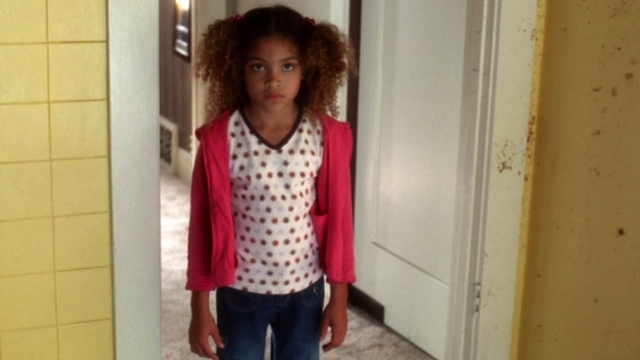“You and I have unfinished business.”
Like Wes Anderson’s The Royal Tenenbaums, Quentin Tarantino’s Kill Bill creates an impossible, stylized world filled with references to other works (like many many of them) but succeeds because under all of that, there’s a simple, honest story. Here, it’s one of the oldest stories: the cycle of revenge, about two people–the Bride (Uma Thurman) and Bill (David Carradine)–who love each other but still have to destroy each other, and the consequences that keep spiraling outward from that.
Of all the games Tarantino has played with structure, this one towers over all, with the convoluted jumping of vol. 1 setting up the almost entirely straightforward vol. 2. That jumping isn’t arbitrary, it sets up a great beginning and ending for vol. 1: the end layers a recap of what’s gone before and with a foretelling of what will happen; and the first fifteen minutes of the entire story show how Bill and the Bride seal their fates, and that they both know it. (Tarantino has left open the possibility of a vol. 3.)
That “everything else” encompasses quite a lot: wire-fu, pop songs (you can never hear Nancy Sinatra’s “Bang Bang” the same way again), blood fountains, anime, flamenco, a discussion of Superman that has a level of insight Zack Snyder couldn’t imagine, live burial, a performance from Uma Thurman that I couldn’t imagine either, eyeballs, and my own favorite detail, an airplane flight where all the passengers have swords. (“Purpose of your visit?” “Revenge.” “Fine, have a good trip!”) It’s as moving and as entertaining as Shakespeare or (one of Tarantino’s three favorite movies) Rio Bravo, the sort of work where you expect to get every flavor of experience–low comedy, middlebrow culture, high drama–all in one evening.
Both volumes of Kill Bill stream free on Amazon Prime.


